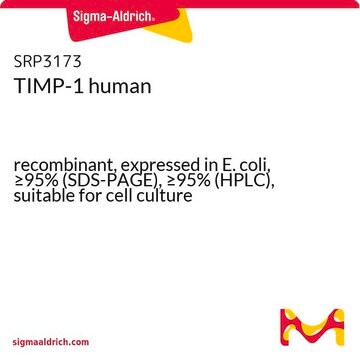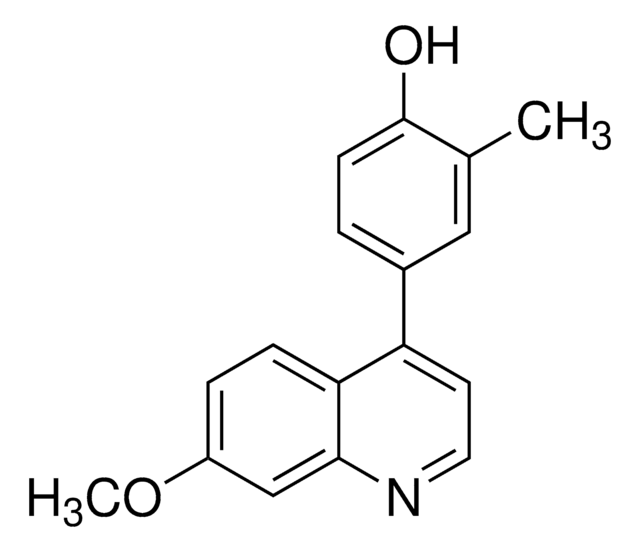SRP8049
Periostin mouse
recombinant, expressed in CHO cells, FLAG® tagged, >95% (SDS-PAGE)
Synonym(s):
OSF-2, Osteoblast-specific factor 2, PC cell-derived growth factor
About This Item
Recommended Products
biological source
mouse
recombinant
expressed in CHO cells
tag
FLAG® tagged
Assay
>95% (SDS-PAGE)
form
lyophilized
mol wt
~85 kDa
packaging
pkg of 10 μg
storage condition
avoid repeated freeze/thaw cycles
impurities
<0.1 EU/μg endotoxin, tested
color
white
UniProt accession no.
shipped in
wet ice
storage temp.
−20°C
Gene Information
mouse ... Postn(50706)
General description
Biochem/physiol Actions
Physical form
Reconstitution
Other Notes
Legal Information
Storage Class Code
10 - Combustible liquids
WGK
WGK 2
Flash Point(F)
Not applicable
Flash Point(C)
Not applicable
Certificates of Analysis (COA)
Search for Certificates of Analysis (COA) by entering the products Lot/Batch Number. Lot and Batch Numbers can be found on a product’s label following the words ‘Lot’ or ‘Batch’.
Already Own This Product?
Find documentation for the products that you have recently purchased in the Document Library.
Our team of scientists has experience in all areas of research including Life Science, Material Science, Chemical Synthesis, Chromatography, Analytical and many others.
Contact Technical Service







